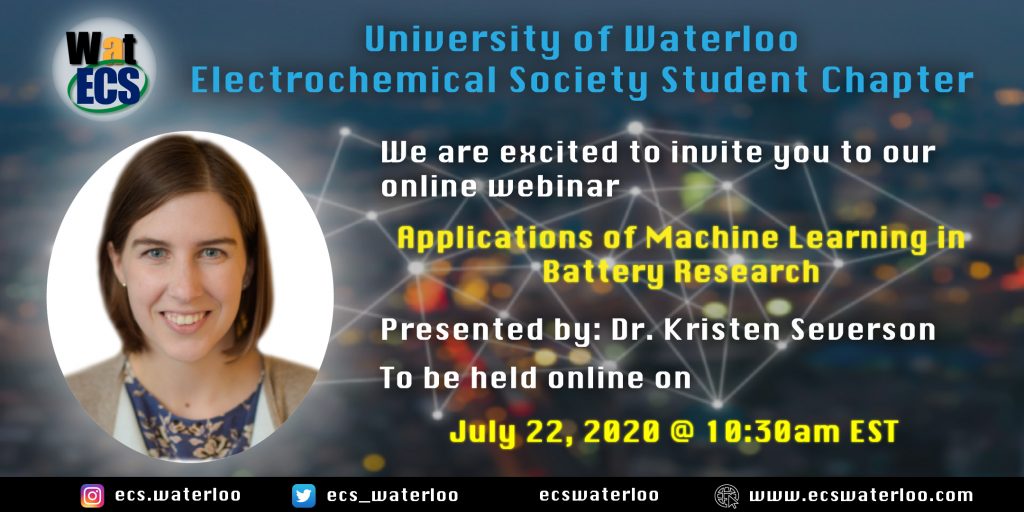Join the ECS University of Waterloo Student Chapter (WatECS) on July 22, 2020, at 10:30 am (EST) for a FREE webinar with Dr. Kristen Severson on the “Application of Machine Learning in Battery Research.” Anyone interested is welcomed to attend. *This event requires a registration*
About Dr. Kristen Severson
Bio: Kristen Severson is a postdoctoral researcher at IBM Research in Cambridge, MA. Her interests are broadly in applied machine learning with a current focus on healthcare applications. Prior to joining IBM, Kristen earned her PhD at MIT where she worked on machine learning applied to problems in lithium-ion batteries, production oil wells, and bioinformatics. She also holds a BS from Carnegie Mellon University.
Abstract: Accurately predicting the lifetime of complex, nonlinear systems such as lithium-ion batteries is critical for accelerating technology development. However, diverse aging mechanisms, significant device variability, and dynamic operating conditions have remained major challenges. We generate a comprehensive dataset consisting of 124 commercial lithium iron phosphate/graphite cells cycled under fast-charging conditions, with widely varying cycle lives ranging from 150 to 2300 cycles. Using discharge voltage curves from early cycles yet to exhibit capacity degradation, we apply machine-learning tools to both predict and classify cells by cycle life. Our best models achieve 9.1% test error for quantitatively predicting cycle life using the first 100 cycles. The resulting model is then used in a Bayesian optimization framework for the design of experiments to identify high-cycle-life charging protocols among 224 candidates in only 16 days – as compared with over 500 days using exhaustive search without early prediction. This work highlights the promise of combining deliberate data generation with data-driven modeling and machine learning to predict the behavior of complex dynamical systems and accelerate scientific discovery.




